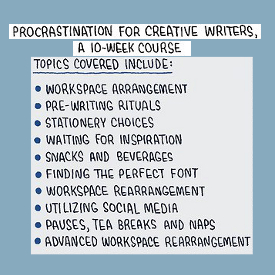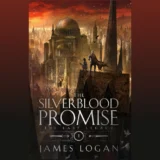Alternate title: Old Man Yelling At Clouds
During the Golden Age of Hollywood, film production and distribution was handled through what has become known as the “studio system”. Major studios (and there were only 5 to 8 of them), owned the film business from start to finish: talent was signed to multi-year, ironclad contracts (which is why you so often see the same actors and actresses working together), production was managed on a studio’s own production lots and the finished product was made available to the public through theaters owned by the studios.
This had its benefits of course – for the studios. Independent theaters were forced into an untenable position through the practice of block booking (some films only available to a theater if they agreed to purchase a package of films); actors and actresses (and screen writers and directors) had limited opportunities (some potentially great films never got made because one studio wojldn’t release an actor to another; some produced films would probably have been better if they’d gotten the talent they wanted), and it was a good thing that many towns had numerous (studio owned) theaters because if they didn’t, you were plain out of luck if you wanted to see a film from studio A and they didn’t have a theater nearby.
That system was broken up through Federal anti-trust actions. It took RKO down with it.
It sure looks like it is happening again though.
Every studio is starting to offer, or making plans for, their own in-house distribution network through streaming services. And these aren’t streaming services like Hulu and Netflix – those distributors act like independent theaters used to – buying content from whichever production company is turning out popular stuff. No. Now it’s their content only.
Now we’re seeing studios once again producing, distributing and displaying their product through a totally closed system: CBS produces ST: Discovery and only airs it on the subscription-based CBS All Access channel.
Apple seems poised to do the same: hey, when you spend a billion dollars on new shows and have the choice of sharing the revenues or keeping them all to yourself…what’s the smart move?
It was also recently announced that Disney is apparently doing the same thing. They’re starting with “live action Star Wars” programming – that will only be shown through their own streaming service (coming online in 2019).
Next thing you know, Amazon will start applying the same concept to fiction publication: we’re only selling books written by our in-house staff of contracted writers (or, more likely, starting out with in-house production priced “very competitively” when compared to independent offerings).
Eventually we’ll be offered the opportunity to aggregate our viewing…and the subscription price for that service will be just a few points lower than whatever it will cost to subscribe to Hulu, Netflix, HBO, Starz, Apple, Disney, CBS, ABC, NBC, PBS, Universal, Warner Brothers, Fox, Sony….maybe, what, $50 bucks per month?
It’s another aspect of divide and conquer, with the divided expected to pick up the tab.
I was just reading someone else’s complaints about this and was reminded of the fact that I used to have access to 4 national broadcasters plus 3 UHF local stations (NBC, CBS, ABC and what is now known as PBS. Plus the local Philadelphia market syndicators on UHF – 17, 24 and 48). They all had less than 24 hours worth of programming (most shutting down around 2 am and returning for sunrise programming at 5 or 6 am); shows were interrupted by commercials – methodically and reliably – every 15 minutes and
WE WERE HAPPY WITH THAT.
(You could COUNT on those commercials, both when they’d appear and how long they’d run, and plan your snack and bathroom breaks accordingly. Now, there’s no guessing, neither when nor how long.)
News at 6:30, delivered by anchors who were regarded as some of the most trustworthy people in America.
The point this other writer was making was not a “barefoot in the snow, uphill, both ways” screed, it was commentary on the fact that come the following morning, whether at school or around the water cooler at work, something like 70% of us had had a shared experience the previous evening. We had touchstones recognizable to nearly everyone and whether we praised them or complained about them, we were all talking from the same page. If you preferred Jennings over Kronkite, at least you knew who you were arguing about.
But now. Not only are we being asked to pay for the privilege of watching advertising (would you like to view a long one time ad or be interrupted multiple times…?), but we’re being asked to divide our shared experiences even more, this time based on how much we’re willing to spend each month and which show’s marketing efforts snag our interest. (Or join the class of shuffled off to the “I’ll wait till it’s on DVD” bin.)
Note that cable companies have up until now resisted consumer entreaties to allow the viewer to select what they want to watch and pay for (block booking) and that the major studios are all launching subscription based streaming services – both methodologies that eliminate consumer choice (if you subscribe, you’ve buying everything they offer, not just the show(s) you are interested in).
What’s next, a Happy Meal that requires you to also purchase a McRibb sandwich?
How are we going to hold conventions in the future, cons that feature media properties? Programming tracks scheduled by streaming network? Forget traditional conventions, they’ll muddle through as attendees will still have shared experiences, even if they are getting a bit long in the tooth, but media cons? Think about it. Each “network” will want their shows to be the center of attention, the convention wants as many attendees as possible. The networks will start pressuring the cons to sell tickets to their viewers (because who is going to go to an autograph signing for a show they’ve never seen?) and the con staff, if they’ve got half a brain, will quickly turn that into a bidding war for the studios. Which may split the cons (Wednesday is CBS All Access Day at MegaMediaCon! If you don’t have a subscription, don’t bother….).
The fan feuds are going to be great – people arguing incessantly over shows YOU ought to be watching, instead of that other crap you’ve signed up for.
No, instead, we’ll have studio managed media cons (kind of like that Disney thing we’ve already got) and fandom will follow suit, legions of fans all unable to talk to each other because they don’t subscribe to the same networks.
Note also that right now, Disney has been talking about buying 21st Century Fox and the Sinclair Broadcasting Network is trying to become the country’s largest owner of local television stations.
What we need is a true “genre” channel; an aggregator that purchases the rights to air genre-related shows and only genre-related shows, delivered to your phone/table/pc/television for one low price. (It will never happen.)
Fowler Schocken* is gleefully rubbing his hands together as he watches the approach of the future he inhabits.
***
*Schocken is one of the main characters in Pohl and Kornbluth’s The Space Merchants. The world run by advertising firms, all bent on creating “circular trusts” that bounce unwitting and press-ganged consumers into purchasing only the products offered by their companies.











